About Our Projects
When the Washington State Legislature and others identify areas in need of improvement for DSHS Developmental Disabilities Administration services, we work with those most impacted to find solutions. Because these solutions may need money or other resources, we report to the Legislature with recommendations and the resources needed.
Show and Share Summary and Next Steps
On Jan. 27 and Feb. 10, 2022, we held Show & Share events to get input and direction from the community on seven projects. The summary below reflects their input and ideas for our projects. It also explains our response to that input. Thanks to community feedback, our projects are stronger.
The community was open in sharing input. Participants often shared private health information. To preserve individuals’ right to privacy, we are sharing the summary, high-level ideas for our projects.
Thank you all who had participated in the Show & Share events! Your input is making a difference in these projects!
Project Quicklinks
- Guardianship Laws
- Affordable Housing
- Healthcare Student Training
- I/DD and Behavioral Health
- Quality in Residential Settings
- Smaller Caseloads Report
- Provider Recruitment
Guardianship Laws
Ideas from the community for the Guardianship Laws Report Project
- More public information from the courts on the Uniform Guardianship Act and alternatives to guardianship like supported decision making.
- Increase the public guardianship workforce, so people who need a guardian can find one.
- Review payment process for people cannot afford to pay guardianship fees.
- Develop a more robust system for the courts to monitor quality in guardianship services, including payments and minimum requirements.
- Provide information and support to those who are navigating the process to set up a guardianship. For example, could the courts have someone to walk unpaid guardians through the process?
- The reporting frequency and process should be reviewed.
- The Office of Public Guardians should have increased funding to support more people and be able to support alternatives to guardianship, for example by paralegals.
- Review process and options for establishing emergency guardianships.
Ways we are using community input for this project
- Collecting community feedback on changes to existing guardianship laws.
- Creating a survey to collect additional feedback on needed changes to existing guardianship laws.
- Creating a report for the Legislature that includes recommendations for needed changes to existing guardianship laws.
Schedule for the Guardianship Laws Report Project
- Spring 2022: Collect more information from the community via a survey.
- Summer 2022: Draft a report to the Legislature with information collected and recommendations
- Fall 2022 (due Oct. 1): Submit the final report to the Legislature
Affordable Housing Study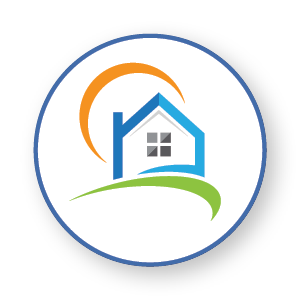
Ideas from the community for the DDA Affordable Housing Study
- Affordable housing is needed statewide. There are different needs and challenges outside of the King County/Puget Sound area.
- Affordable housing options need to be varied, not only in location, but also in style/design of housing, community setting, accessibility, proximity to transit, etc. Housing should be person-centered.
- Explore starting housing navigators, rapid housing models, intentional communities, simplifying the Section 8 process and other alternative ways to increase housing.
- Study the need for people who are homeless, as well as those living with aging parents.
- Learn about their affordable housing efforts offered by cities such as Renton, Redmond, and Ritzville.
- Professional care and housing are directly linked. Many people are limited in their housing options not only by a lack of affordable housing, but also a lack of direct care professionals. Spaces need to be large enough to accommodate care professionals.
- Affordable Housing Study should include 30% of Area Median Income (AMI) for income levels.
- Affordable housing varies by county and housing authority. How they find clients and connect them to housing is not well understood.
- Data from various agencies and nonprofits, such as Open Doors, could inform the Affordable Housing Study.
Ways we are using community input for this project
- Investigating the affordable housing gap by researching the number of adult DDA clients who are homeless or living in unsecure housing situations, living with elderly parents, etc. with the focus on people who have an income of 30% of AMI or less.
- Connecting with cities to understand their affordable housing efforts and discuss ways we might be able to collaborate.
- Holding focus group meetings with organizations and housing authorities statewide to understand their existing efforts and look for ways partner, including by sharing data.
- Creating a report for the Legislature that shares participants’ vision for what affordable housing look like and makes recommendations for increasing the amount, variety and locations of affordable housing.
- Reviewing alternative housing models.
- Supporting the Provider Recruitment Project, which has the goal of increasing the provider workforce.
Schedule for the Affordable Housing Project
- Spring 2022: Conduct the Affordable Housing Study
- Summer 2022: Draft two reports to the Legislatures with information collected and recommendations
- Fall 2022 (due Oct. 1 and Dec. 1): Submit the final reports to the Legislature
Health Care Student Training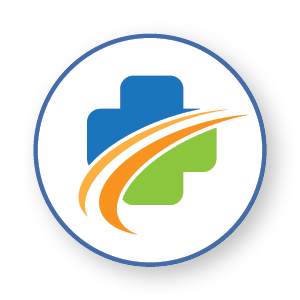
Ideas from the community for the Health Care Student Training Project
- Quality health care comes from health care providers with the following traits and skills:
- creative, flexible, humble, love to learn, are compassionate, and good listeners.
- well-trained in active listening skills, behavioral management, emotional well-being, and person-centered thinking.
- aware that family members are experts about their loved one with intellectual and developmental disabilities.
- experienced with the IDD community in their personal life (i.e. with family members, or through school and work opportunities).
- Successful training includes:
- opportunities or requirements to participate in lectures on disabilities or rotations, practicums, internships, etc. with the IDD community in a variety of settings, including residential programs.
- Specialty training that improves competence, confidence and disability awareness
- DDA should collaborate with the UW Autism Center to see if their efforts could be expanded to other ages or disabilities.
Ways we are using community input for this project:
- Investigating the gap in training by:
- Creating and distributing a survey to vocational training institutions, colleges, and universities to better understand the amount of IDD training they currently include in their curriculum for health care and direct care providers.
- Creating a survey for distribution for health care and direct care students to better understand their lived experience with people with IDD, the training they are being provided and their interest in participating in additional training on disabilities.
- Meeting with UW Echo and Lend Programs to discuss their autism efforts and to see if they could be expanded to other ages or other disabilities.
- Creating a report for the legislature that explains Show and Share participants’ vision for what well-trained professionals look like and makes recommendations for training that results in the skills and qualities that help ensure quality, competent and sensitive health care and direct care services.
Schedule for the Health Care Student Training Project
- Spring 2022: Collect more information from colleges and students via a survey
- Summer 2022: Draft a report to the Legislatures with information collected and recommendations
- Fall 2022 (due Oct 1st): Submit the final report to the Legislature
I/DD and Behavioral Health Best Practices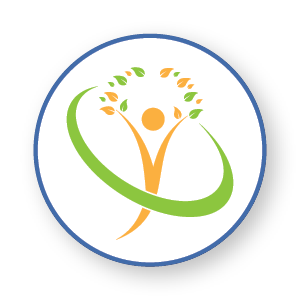
I/DD and Behavioral Health Best Practices One-Pager
Comments about behavioral health system:
- Important to think about intersectionality with behavior and development disability.
- Ability to speak is the gateway and barrier to behavioral health services like obtaining a diagnosis,
- medication management, and individual or group therapy.
- Waive the requirement of talk therapy for clients with a developmental disability.
- Behavioral health providers are difficult to find. There is no webpage, central hub or easy way to find and identify providers.
- Behavioral health providers need to understand intellectual or developmental disabilities,
- as well as behavioral/mental health. Training on IDD is needed.Providers need training on how to listen to people who don’t use words to communicate.• Providers need to give clients the time they need to process and articulate.
- Need alternatives to Applied Behavior Analysis (ABA).
- Need ABA providers in state who know how to work with adults.
- The current system doesn’t have enough long and short-term solutions.
- In-state residential programs and facilities are needed for children and youth. For youth returning from out-of-state treatment, a transition or long-term residential supports should be established.
- Additional capacity for residential therapeutic inpatient treatment is needed.
- Appropriate long-term supports are needed for adults with behavioral issues.
- Transportation to providers and services is a challenge, which is often far from homes.
- Be less assuming about level of functioning, and presume competence.
Comments about residential supports:
- Providers should be given the tools needed to support people with behavioral health issues. A database where providers can access training, best practices and other provider contacts would be helpful.
- High turnover of providers is an issue.
- Resources to address requests for technical assistance are needed.
- De-escalation tools and up-front planning are needed to prevent or mitigate a crisis.
- Food autonomy is not good or appropriate for some people. It's a barrier that keeps some people from
- being able to go into a Group Home. Group homes don't want to put alarms on pantries.
- There needs to be training to get away from punishment mentality "you're misbehaving
- because you're bad."
Comments about other system issues:
- Bolster collaboration project with school districts to support youth moving from school to work.
- It is difficult to navigate the necessary transition in services when children become adults.
- Communication between care teams needs to increase. Immediately share Positive Behavior Support Plans.
- A realistic algorithm focusing on positive points is needed with a list of what people can do being longer than what they can’t do.
- More sexual education providers are needed, especially those who accept Medicare.
- ADA coordinator is needed for youth and families.
- Patients are not being accepted by Supported Living agencies because of their behaviors and there are not enough supports.
- Without evaluation and monitoring of the services offered, or even within the construct of person-centered planning, then DDA is in a position to evaluate if services are being spent wisely, or if services are not needed.
- If you have a DD, your rights are determined by the organization that supports you. What services need to be added or how should assessment change?
Ways we are using community input for this project
- Gathering ideas for best practices from the community to share with the Legislature, such as:
- Removing the ability to speak as the gateway to behavioral health services like obtaining a diagnosis, medication management and individual or group therapy.
- Promptly sharing Positive Behavior Support Plans with services clients access.
- Well trained providers who:
- Focus on the individual’s needs and less on the disability.
- “Listen” well to someone who doesn’t use words to communicate.
- Allow the time needed for each individual to process and articulate.
- Share with the Legislature areas the community identified for future improvement efforts:
- Behavioral health providers need training to understand the intersectionality of intellectual and developmental disability and behavior in meeting behavioral health needs.
- Tools and short/long-term solutions for individuals, providers, families, etc. to lower the chances of a crisis, for people with ongoing behavioral health issues and co-occurring IDD.
- More providers, including specialty providers, and critical care residential beds are needed.
- Coordinating with others to collect and share best practices with the Legislature, providers, families and community.
Schedule for the IDD & Behavioral Health Best Practices Project
- Spring 2022: Identify gaps and collect best practices
- Summer 2022: Draft a report to the Legislature with information collected and recommendations
- Fall 2022 (due Oct. 1): Submit the final report to the Legislature
Quality in Residential Settings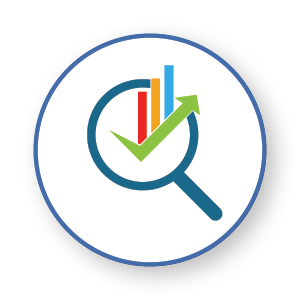
Ideas from the community for the Quality in Residential Settings Project
- No choice in providers, especially during a time of crisis as you have to accept whatever agency
- will take you or your loved one.
- Actively engaged in their community with activities that are important to and for the individual.
- Staff at the homes should treat residents as they would anyone else, regardless of their disability.
- There should be more variety in community residential providers, including ones that support those with greater needs.
- More collaboration between agencies and families/guardians.
Ways we are using community input for this project
- Research options for different types of residential settings.
- Continue conversations with the community to evaluate trends and patterns that could be turned into Quality Assurance metrics.
- Consideration of existing metrics within DDA as well as in outside agencies.
Schedule for the Quality in Residential Settings Project
- Continued stakeholder meetings
- Draft a report to the Legislatures with information collected and recommendations
- Submit the final report to the Legislature due June 2023
Smaller Caseloads Report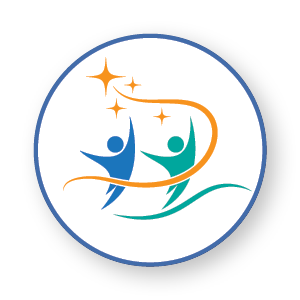
Smaller Caseloads Report One-Pager
Ideas from the community for this project
- If case managers had more time, they could:
- Listen more and work with people on their goals, dreams and challenges.
- Develop a relationship with their clients and be more person-centered.
- Connect people with resources.
- Have time to attend trainings to understand more deeply DDA programs and services.
- Lower caseloads could also:
- Reduce burnout.
- Decrease turnover.
Ways we are using community input for this project
- Creating a survey to ask the community for more detail about case management services now, as well as their ideas for strengthening that service.
- Creating a report for the Legislature that explains Show & Share participants’ vision for how case management services could improve with a 1 to 35 caseload.
- Using feedback to help guide focus for implementation of smaller caseloads should funds be appropriated.
- Training on resources and services available.
- Increasing visits and relationship building with clients.
- Focusing on person-centered approach.
Schedule for the Smaller Caseloads Report Project
- Spring 2022: Collect information from other states on their case management services via a survey
- Summer 2022: Draft a report to the Legislatures with information collected and recommendations
- Fall 2022 (due Oct 1st): Submit the final report to the Legislature
Provider Recruitment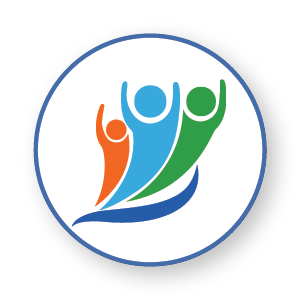
Provider Recruitment One-Pager
Ideas from the community for this project
The three main topics that resonated during the Provider Recruitment sessions were—training, marketing and advertising, and wages.
Training
- Training topics are not disability specific for the population that is served.
- The training needs to be more focused on children with disabilities and their needs.
- The Training Partnership curriculum is not geared toward DDA clients but focused more on the aging population’s needs.
- It could be good to have vocational classes at the high school for future providers.
- It could be good to have Home Care Aide certification programs through the colleges.
- Offer additional training for the Home Care Aide certificate for credits focused on different aspects of the profession (disability specific / behavioral / cognitive knowledge). These credentials earned can be reflected through higher wages.
- There is a need for reliable mentorship to help new workers and seasoned workers to get through the administrational duties of the job (reporting wages, overtime, etc.)
Marketing and Advertising / Recruitment and Retention
- High schools and colleges could be introduced to this profession through school job fairs.
- Give potential employees a full knowledge and transparency of the profession for this rewarding, yet challenging career.
- Get the word out that this is a great career.
- People do want to help others.
- Make the profession a career for the worker, not just another job to fill time till another better opportunity comes along.
Wages
- The amount these professionals are being paid versus what they worth is unfair.
- New workers who get lower wages seem to care less about the job that they are doing.
- State direct support workers get a higher wage than the workers that are employed by private agencies.
Ways we are using community input for this project:
- All of the information given was helpful to plan for the future of recruitment and retention of providers.
- The suggestion of expanding training to school settings is being taken into consideration. There will need to be much coordinating with other state agencies and other government agencies.
- Changing the curriculum for training specialties is a subject that is important to our stakeholders and your voices have been heard on this issue.
- Efforts are being made currently with the development of marketing and advertising tools to get the word out for this viable profession
Comments
| If you have comments about our projects, please contact Rebecca Rodni at 360.742.9509 or DDAProjects@dshs.wa.gov |
